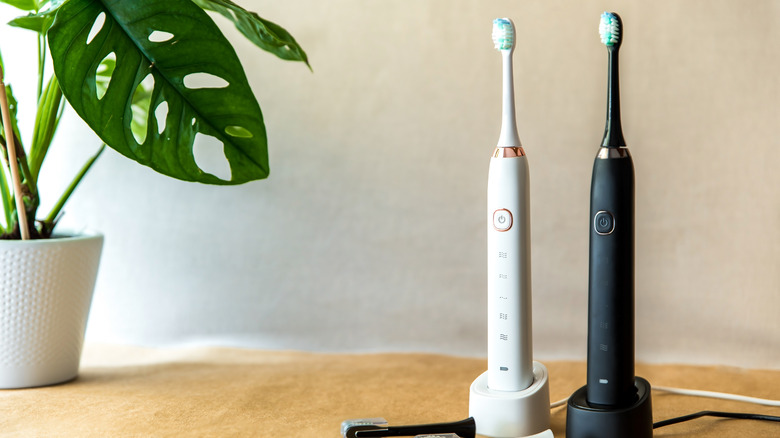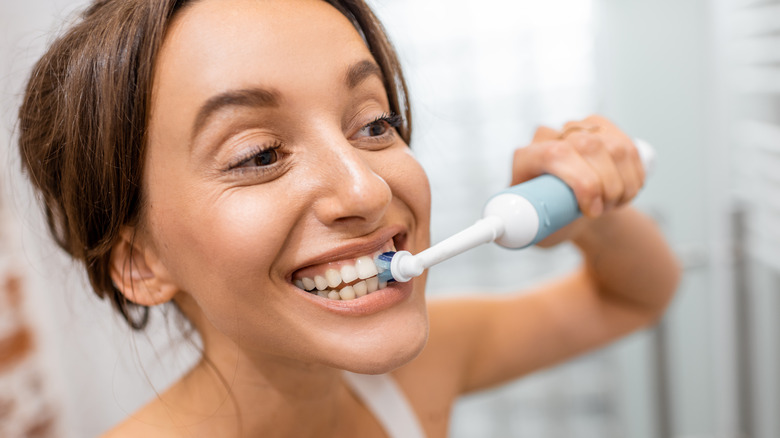Is Your Electric Toothbrush Actually Damaging Your Teeth?
The lack of oral hygiene can affect your overall well-being, according to Mayo Clinic. That's because a person's mouth is the central entrance region for environmental bacteria. Therefore, dental hygiene usually involves proper brushing and flossing regularly. This practice helps keep bacterial growth at bay and prevent the risk of oral infections. In fact, not brushing your teeth for days may result in plaque formation and gum disease (per Ellensburg Dental Care).
Besides brushing every day, it's also necessary to use the right toothbrush and follow the proper brushing technique that helps reach small spaces and gets rid of foods and acidic build-up. A 2022 report by Mintel states that 41% of U.S. adults use an electric toothbrush, whereas a more staggering 58% opt for a manual toothbrush in a six-month period (via Consumer Reports). Even though both perform the function of brushing, their cost, ease of use, safety, and size could certainly play a role in consumer choices. Plus, your goals with dental hygiene may also influence which type of brush could be better suited for you. But if you are cleaning your teeth with an electric brush, here's what you need to know.
Electric toothbrushes are gentler on your gums
Because of their increased efficiency, electric brushes could give a better first impression to some people (via Kirkland Family Dentistry). After all, these toothbrushes are much gentler than the traditional ones, thus reducing the risk of gum bleeding from abrasive brushing. In addition, they're a good choice for those with bone diseases, such as arthritis, as it offers convenience and less effort during brushing.
Studies have even discovered that electrical toothbrushes as a more efficient tool for cleaning teeth and gums than a manual brush, according to Oral Health Foundation. They have shown amazing results in preventing gingivitis and plaque formation, as per Insider. In fact, a 2019 study in the Journal of Clinical Periodontology found that people who used electrical toothbrushes for over a decade had significantly better oral health. For instance, they had a reduced risk of tooth loss or gum disease.
Despite the many benefits of electric toothbrushes, there are some downsides to using them as well. According to Healthline, they are much more expensive than manual brushes. Plus, one 2018 clinical trial published in Acta Odontologica Scandinavica, found no real difference in plaque removal when comparing manual and electric toothbrushes. With that being said, no real harm can come to your teeth from using an electric toothbrush, but you'll want to be aware of the pressure you apply on the brush because too much of it can eventually lead to damage to your enamel (per Taylor Dental).


